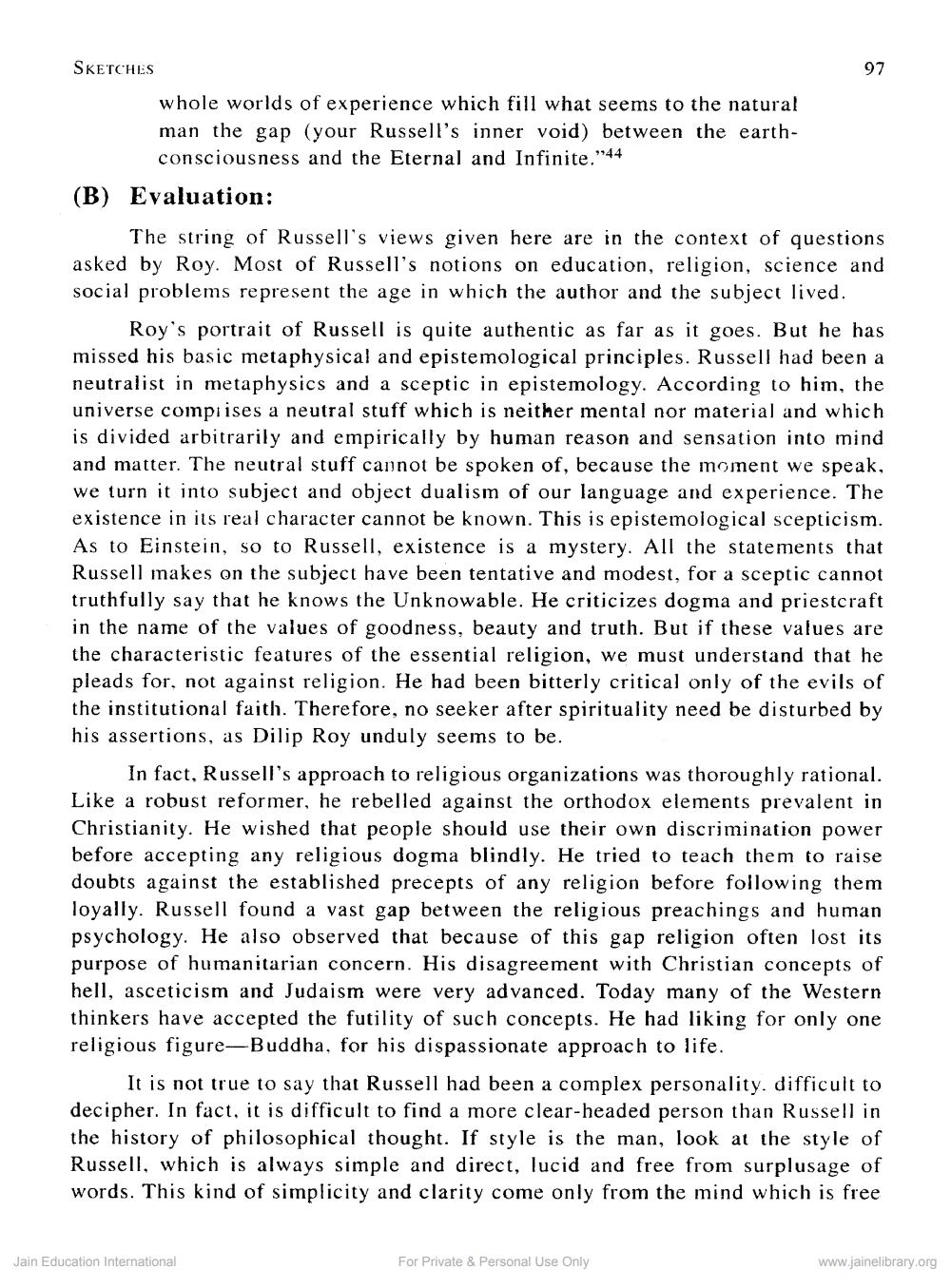________________
SKETCHES
whole worlds of experience which fill what seems to the natural man the gap (your Russell's inner void) between the earthconsciousness and the Eternal and Infinite."44
(B) Evaluation:
The string of Russell's views given here are in the context of questions. asked by Roy. Most of Russell's notions on education, religion, science and social problems represent the age in which the author and the subject lived.
97
Roy's portrait of Russell is quite authentic as far as it goes. But he has missed his basic metaphysical and epistemological principles. Russell had been a neutralist in metaphysics and a sceptic in epistemology. According to him, the universe comprises a neutral stuff which is neither mental nor material and which is divided arbitrarily and empirically by human reason and sensation into mind and matter. The neutral stuff cannot be spoken of, because the moment we speak, we turn it into subject and object dualism of our language and experience. The existence in its real character cannot be known. This is epistemological scepticism. As to Einstein, so to Russell, existence is a mystery. All the statements that Russell makes on the subject have been tentative and modest, for a sceptic cannot truthfully say that he knows the Unknowable. He criticizes dogma and priestcraft in the name of the values of goodness, beauty and truth. But if these values are the characteristic features of the essential religion, we must understand that he pleads for, not against religion. He had been bitterly critical only of the evils of the institutional faith. Therefore, no seeker after spirituality need be disturbed by his assertions, as Dilip Roy unduly seems to be.
In fact, Russell's approach to religious organizations was thoroughly rational. Like a robust reformer, he rebelled against the orthodox elements prevalent in Christianity. He wished that people should use their own discrimination power before accepting any religious dogma blindly. He tried to teach them to raise doubts against the established precepts of any religion before following them. loyally. Russell found a vast gap between the religious preachings and human psychology. He also observed that because of this gap religion often lost its purpose of humanitarian concern. His disagreement with Christian concepts of hell, asceticism and Judaism were very advanced. Today many of the Western thinkers have accepted the futility of such concepts. He had liking for only one religious figure-Buddha, for his dispassionate approach to life.
It is not true to say that Russell had been a complex personality, difficult to decipher. In fact, it is difficult to find a more clear-headed person than Russell in the history of philosophical thought. If style is the man, look at the style of Russell, which is always simple and direct, lucid and free from surplusage of words. This kind of simplicity and clarity come only from the mind which is free
Jain Education International
For Private & Personal Use Only
www.jainelibrary.org




